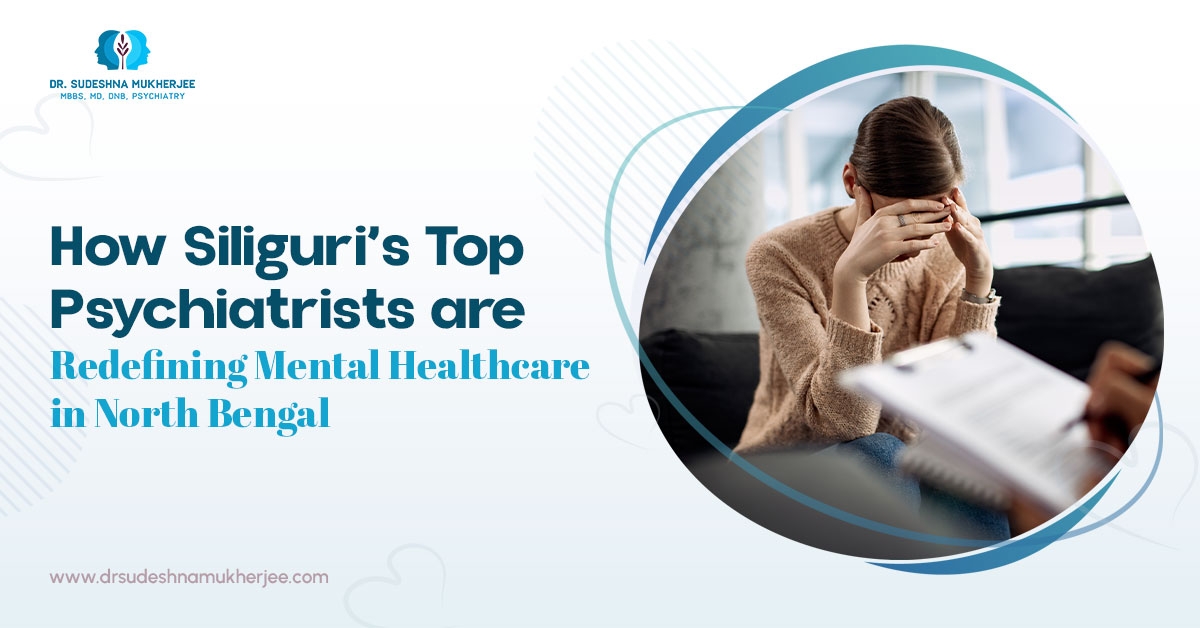One of the most studied and effectiveforms of psychotherapy is cognitive behavioral therapy, commonly known as CBT. Doctors have used CBT to manage PTSD, OCD, depression, anxiety, and other illnesses; however, there are still a lot of myths and misunderstandings about CBT despite its widespread use and proven efficacy.
Consult the leading psychiatrist for cognitive behavior therapy in Siliguri or near you. Let's dispel some of the most widespread misconceptions around CBT and learn about the facts of this effective treatment method.
Myth 1: CBT Is Only for Mental Illness
Fact: Cognitive behavioral therapy (CBT) is useful in treating a variety of mental health conditions, but it is not just for people who have been diagnosed with a psychiatric condition. CBT is a versatile therapy, and approaches are widely used to improve communication, manage stress, break negative behaviors, increase general well-being, etc. CBT's methodical and solution-focused talk therapy can help those who don't have a mental health diagnosis.
Myth 2: CBT Means Positive Thinking
Fact: One of the most common misunderstandings people haveis that cognitive behavioral therapy (CBT) only trains patients to think positively. What it actually does is, CBT focuses on cultivating realistic and well-rounded thought processes. There’s nothing sugarcoating or ignoring actual issues; it assists people in identifying harmful thought patterns and substituting them with rational, evidence-based ideas.
Myth 3: It’s a Quick Fix
Facts: CBT is sometimes referred to as a "quick fix" due to the fact that it is typically shorter than classical psychoanalysis, but "brief" does not imply "easy" or "instant." The therapy demands dedication, repetition, and involvement. Doctors, based on unique health situations, may advise short-term or long-term CBT sessions. You might talk to the best cognitive behavior therapy doctor in Siliguri, Dr. Sudeshna Mukherjee.
Myth 4: CBT Doesn’t Work for Everyone
Fact: CBT isn't a one-size-fits-all treatment, just like any treatment, whether medicines, surgery, or psychotherapy. Nonetheless, studies indicate that it works well for a broad spectrum of individuals from various age and socioeconomic backgrounds. Many forms of cognitive behavioral therapy (CBT), such as trauma-focused CBT, may be more appropriate for certain requirements if regular CBT proves ineffective.
Myth 5: CBT Is for Adults
Fact: CBT has been shown to be successful for kids and teenagers and is very flexible. To assist young patients in recognizing their thoughts and feelings and creating constructive coping mechanisms, psychologists or psychiatrists ensure age-appropriate methods like games, illustrations, or storytelling. Basically, doctors ensure the treatment remains patient-centric.
Myth 6: CBT is All About A Therapist Giving Advice
Fact: CBT needs collaboration. The therapist works with the patient to examine beliefs, explore thoughts, and develop coping mechanisms rather than only giving them advice. Here, the client actively participates in goal-setting, progress monitoring, and strategy practice.
Yes, unfortunately, people may be discouraged from asking for assistance or participating completely in the process due to misconceptions.
If therapy is something you're thinking about, don't allow myths, assumptions, or misconceptions to keep you from potentially life-changing care. Consult a highly trusted psychologist for cognitive behavior therapy in Siliguri city.




